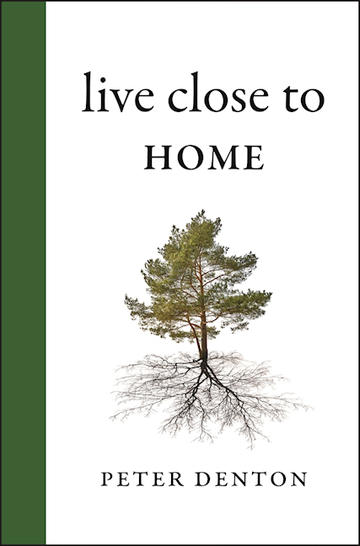About BC Books Online
BC Books Online was created for anyone interested in BC-published books, and with librarians especially in mind. We'd like to make it easy for library staff to learn about books from BC publishers - both new releases and backlist titles - so you can inform your patrons and keep your collections up to date.
Our site features print books and ebooks - both new releases and backlist titles - all of which are available to order through regular trade channels. Browse our subject categories to find books of interest or create and export lists by category to cross-reference with your library's current collection.
A quick tip: When reviewing the "Browse by Category" listings, please note that these are based on standardized BISAC Subject Codes supplied by the books' publishers. You will find additional selections, grouped by theme or region, in our "BC Reading Lists."
In his third thought-provoking RMB manifesto Peter Denton explains how we can change course toward a sustainable future in immediate and practical ways – and why it could make all the difference for ourselves and for future generations.
As individuals and as a culture and society, we have increasingly emphasized the global village over the village in which we actually live. Our preference for the faraway is at the heart of the environmental and social catastrophes that today seem utterly unavoidable. If things are going to change, there are four words of power we need to embrace: Live close to home.
If we do, if we focus on changing and improving the aspects of our lives over which we have control, the system effects of such a transformation can only be positive for ourselves, our families, our communities and the world.
Gift Ecology: Reimagining a Sustainable World (RMB, 2012) explored the historical choices underlying our Machine Civilization, with its emphasis on the material world and mechanical systems, fuelled by the economics of exchange. It offered an alternative perspective, expressed in relationships and grounded in the possibilities unleashed by gifts, as the key to an ecologically sustainable society.
Technology and Sustainability (RMB, 2014) looked at how values underpin all the choices we make every day about our lives, our technologies and our world. Technology is in our heads, not our hands, so we have both the power and the responsibility to make better choices, based on different values, if we are going to advance toward a sustainable future.
Live Close to Home (RMB, 2016) completes the picture, arguing that in a climate-changing world, ecological and social resilience must be rooted in local communities, in our relationships with each other and with the physical place we call “home.”
What a stimulating book! The stories draw the message home, bringing the reader into the practical ways we can all learn to live close to home. In completing his trilogy Denton has added to the library of key books on our path toward sustainability.
Denton employs his background as an environmental advocate and ordained minister to explore responsible stewardship in the age of globalization. His gospel of living simply recalls Thoreau as he reminds readers that solutions to today’s obstacles can often be found in returning to simpler ways of living, and that many elders can still share this wisdom.
This book offers a very smart account of what it might mean to live closer to home--a choice with profound ecological, economic and personal ramifications, most of them for the better. It will make you think and think hard!
Live Close to Home is much more than a book title. It is a practical guide to living in the complicated modern world, but with two targets in mind. It offers a way to both discover and lead a flourishing life, and also enriching the Earth in the process.



